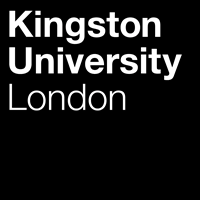Prof A Karlyshev
Applications accepted all year round
Self-Funded PhD Students Only
About the Project
The proposed research is a basic study into molecular mechanisms of interaction of bacteria with host cells and/or survival in the environment, with a potential for the development of novel antibacterial drugs.
Depending on a specific project title (to be discussed with the supervisor) a research could be focused on any relevant area, including investigation of specific virulence traits/factors, study of bacterial interaction with host cells (e.g. adhesins of probiotic strains), peptidases or protein secretion, or investigation of the mechanisms of stress response.
In addition, we’re offering training in bacterial genomics, and so a project could be focused on bacterial genome sequencing using IonTorrent (Personal Genome Sequencing Machine) available here.
Although research in our lab is focused on Campylobacter and Yersinia, we are also interested in probiotics, and also welcome suggestions/proposal to study other bacterial pathogens. Therefore, an example of a possible research outlined below does not exclude other options, and we’re happy to discuss alternative proposals.
Background
Campylobacter is the main bacterial cause of gastroenteritis worldwide. In particular, it is the most common cause of diarrhoea in England and Wales with over 50,000 cases of Campylobacter infection reported annually. Despite implementation of various ways to control this pathogen in poultry, chickens remain the most important source of infection in humans. Colonisation of host tissues is an important step in bacterial infection. One of the mechanisms involved in colonisation is attachment of bacteria to host cells via specific interaction between bacterial adhesins and host cell receptors. In addition, adhesins may be involved in biofilm formation protecting bacteria from adverse environmental conditions.
Aim
Investigation of selected known and putative adhesins using in vitro binding assays.
Methods
Molecular cloning, PCR, mutagenesis, protein expression and purification, in vitro binding assays, bioinformatics.
Requirements
Candidates must demonstrate strong interest in molecular and/or medical bacteriology, have appropriate training/educational background in relevant areas and satisfy Kingston University entry requirements (upper second class BSc or Master degrees, or equivalent grades). IELTS score of 7.0 or above is required for overseas candidates. Some prior experience and skills in molecular biology/microbiology techniques would be beneficial for successful work on this project. A candidate is expected to be able to produce written reports of publication quality.
Facilities
All facilities and equipment required for work on the project are available at Kingston University in a recently refurbished molecular bacteriology laboratory.
Suitably qualified candidates (see below) should email the following documents to:
[Email Address Removed]
- cover letter
- CV
- application form
http://www.kingston.ac.uk/documents/postgraduate/apply-now/documents/postgraduate-application-form.docx
- copies of appropriate educational certificates (including IELTS Certificate for overseas applicants)
- two references (should be emailed from the referees directly)
Please note that the applicants are also required to prepare/submit a project proposal outline on a topic agreed with the supervisor,
according to the guideline available at:
http://sec.kingston.ac.uk/research/research-degrees/proposal/
Other useful links:
http://www.kingston.ac.uk/research/research-degrees/available-degrees/phd
http://cdn.kingston.ac.uk/documents/aboutkingstonuniversity/howtheuniversityworks/policiesandregulations/documents/AR4-research-courses-201516.pdf
http://sec.kingston.ac.uk/research/research-degrees/how-to-apply/
Keywords: Campylobacter, Yersinia, Lactobacillus, probiotics, adhesins, receptors, peptidases, genome sequencing, IonTorrent, antibacterials, drug targets, cell shape, stress response, gene regulation, virulence factors, pathogenesis, protein secretion
For further information about this project, please contact
Prof. Andrey V. Karlyshev, [Email Address Removed]
Supervisor profile:
http://sec.kingston.ac.uk/about-SEC/people/academic/view_profile.php?id=80
http://www.kingston.ac.uk/news/findanexpert/profile/151/andrey-karlyshev/
http://staffnet.kingston.ac.uk/~KU40907/
Google scholar citations:
https://scholar.google.co.uk/citations?user=17FtRC0AAAAJ&hl=en
Research gate:
https://www.researchgate.net/profile/Andrey_Karlyshev
Research case study:
http://www.kingston.ac.uk/research/research-showcase/research-case-studies/genome-sequencing/
Funding Notes
No funding is available - only self-funded applications can be considered
Information about tuition fees is available at
http://www.kingston.ac.uk/research/research-degrees/fees/
http://www.kingston.ac.uk/postgraduate/fees-and-funding/funding-your-course/
Progression scholarships and loans:
https://mykingston.kingston.ac.uk/mysupport/money/funding/Pages/PostgradScholarships.aspx
Other Financial Support for PhD training:
Funding opportunities listed at SEC Faculty
http://sec.kingston.ac.uk/applicants/pg-scholarships/
General info and links
http://www.kingston.ac.uk/international/fees-and-funding/scholarships/
Loyalty bursaries for alumni and families
http://www.kingston.ac.uk/international/fees-and-funding/scholarships/loyalty-bursaries/#alumni
Postgraduate scholarships
http://www.kingston.ac.uk/international/fees-and-funding/scholarships/international-scholarships/postgraduate-scholarships/
Annual Fund scholarships
http://www.kingston.ac.uk/postgraduate/fees-and-funding/funding-your-course/scholarships/annual-fund-scholarship/
References
Selected references
1. Karlyshev, A. V., Quail M. A., Parkhill J. and Wren B. W. (2013) Unusual features in organisation of capsular polysaccharide-related genes of C. jejuni strain X. Gene 522: 37-45
2. Rubinchik, S., Seddon, A. and Karlyshev, A. V. (2012) Molecular mechanisms and biological role of Campylobacter jejuni attachment to host cells. European Journal of Microbiology and Immunology 1:32–40.
3. Ikeda, N. and Karlyshev, A. V. (2012) Putative mechanisms and biological role of coccoid form formation in Campylobacter jejuni. European Journal of Microbiology and Immunology 1:41-49.
4. Karlyshev A. V., Wren, B. W. and Moran A. P. (2008) Campylobacter jejuni Capsular Polysaccharide. In: Campylobacter 3rd Edition, Edited by: I. Nachamkin C. M. Szymanski and M. J. Blaser, pp. 505-521.
5. Karlyshev A. V. and Wren B. W. (2005) Development and application of an insertional system for gene delivery and expression in Campylobacter. Applied and Environmental Microbiology 71:4004-13.
6. Karlyshev A. V., Ketley J. M. and Wren B. W. (2005) The Campylobacter glycome. FEMS Reviews, 29:377-390.
7. Karlyshev A. V., Champion O. L., Szymanski C. M., Churcher C., Brisson J.-R., Jarrell H. C., Gilbert M., Brochu D., St. Michael F., Goodhead I., Sanders M., Stevens K., White B., Parkhill J. and Wren B. W. (2005) Analysis of Campylobacter jejuni capsular loci reveals multiple mechanisms for the generation of structural diversity and the ability to form complex heptoses. Molecular Microbiology, 55:90-103.
8. Karlyshev A. V., Everest P., Linton D., Cawthraw P., Newell D. and Wren B. W. (2004) The Campylobacter jejuni general glycosylation system is important for attachment to human epithelial cells and in the colonization of chicks. Microbiology 150:1957-64.
9. Karlyshev A. V., Linton D., Gregson N. A. and Wren B. W. (2002) Multiple paralogous genes of C. jejuni essential for flagella biosynthesis and phase variation. Microbiology, 148:473-480.

 Continue with Facebook
Continue with Facebook

